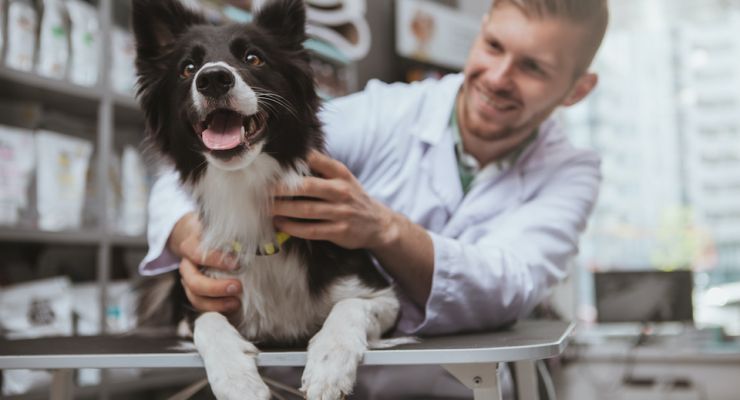Just like people, some pets may lose large amounts of blood due to disease, surgery, or trauma and therefore require a blood transfusion. But where does this life-saving blood for our furry friends come from?
Every day hundreds of animals need blood transfusions, but there are few national animal blood banks. A recent study indicated that although 70 percent of owners were unaware that a cat or dog could donate blood, 89 percent of those surveyed said: “they would be willing to let their pet donate blood if they were suitable”.
With such a lack of awareness, there is a severe shortage of blood available for healing sick pets. Many clinics depend on larger emergency hospitals when they need blood. This could mean that smaller veterinary clinics have limited blood (if any) on-site and may not be able to access the blood they need if an animal needs emergency surgery. Some clinics may not bank blood at all, but they keep a bank of donors available to contact if blood should be needed for an urgent procedure.
Pets have blood types just like us
As with humans, a pet’s blood type is determined by the structure of the blood based on the presence or absence of antibodies along with the make-up of the proteins that sit on the outside of red blood cells. These types may influence a pet’s ability to give or receive blood.
There are about 13 different dog blood types, or groups, that can be tested for, and they are ordered numerically in the dog erythrocyte antigen (DEA) system. These blood types include DEA 1.1, 1.2, 1.3, 3, 4, 5, and 7. Several other types also exist, but there are no tests for them. Dogs can have multiple blood types at one time since the types of blood refer to the different antigens the blood contains. In addition, three blood types have been identified for cats.
Dogs who present as DEA 1.1 positive are considered universal recipients, while those who test negative are considered universal donors. Negative blood types, which are more common in breeds such as Dobermans, Boxers, German shepherds, greyhounds, Airedale terriers, and Weimaraners, are often in demand by blood banks – though almost any dog can donate and make a difference.
The first transfusion a dog receives can be with any type of blood, but if subsequent transfusions are needed, the blood will need to be typed and crossmatched. Crossmatching blood ensures that the blood types are compatible between the donor and the recipient. Cats, on the other hand, must receive the right type of blood to avoid a negative reaction.
How your pet could help save other pets
Requirements for blood donors vary from state to state. If you’re interested in having your pet become a blood donor, contact your local veterinarian, veterinary school, or emergency animal clinic. There usually are requirements that the donors must meet. For example, they may require that a donor dog is generally healthy, weighs more than fifty pounds, be between one and seven years old, be current on vaccinations and free of parasites. Cat donors usually need to weigh over 10 pounds. The animal must be free of any medications except for heartworm or flea prevention drugs. Her heart must be sound with no murmur, and she must have the universal blood type.
Normally cats donate about 1.7 ounces, and dogs donate 15 ounces; this amount is proportionate to body size, similar to the amount that is taken from a person who is donating blood. Cats can donate every eight weeks, while dogs can donate as often as every four weeks.
The ability to donate also depends on the pet’s nature, as most vets will not recruit an animal who seems anxious or fearful about the procedure. Vets have to assess whether the animal is comfortable, and if the pet is not content with the process, they are not a good fit as a donor as the procedure may cause undue stress. A calm and happy dog can normally lie still during the brief procedure, while cats must be anesthetized during each donation session.
In addition to the obvious benefit of helping to save another animal’s life, there is sometimes a monetary reward for donating your pet’s blood. Some veterinarians offer the donor family a discount on future veterinary services, or even free routine vaccinations and check-ups.
If you have a healthy, happy pet who could be a viable donor, why not get them tested for a donor program and help save the lives of other pets.
-Susan Patterson

